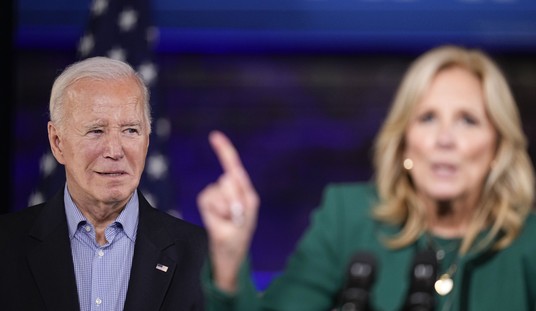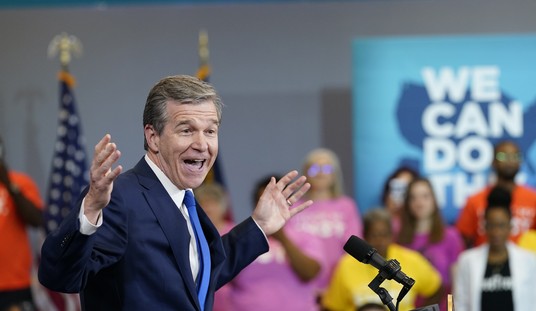The fight to stop climate change is about to become official doctrine of the Catholic Church. By taking this action, the Church turns its back on many of the world’s poorest people, those most vulnerable to the impacts of the United Nations’ dangerously misguided climate and energy policies.
To provide support for the first ever encyclical letter from a pope devoted entirely to the environment, expected to be released in June, the Vatican and the UN chaired a one-day conference on Tuesday titled “The Moral Dimensions of Climate Change and Sustainable Development.”
The final declaration of the conference left little doubt as to what the focus of Pope Francis’ encyclical letter will be. Issued by the Pontifical Academy of Sciences, the “Declaration of Religious Leaders, Political Leaders, Business Leaders, Scientists and Development Practitioners” asserted:
Human-induced climate change is a scientific reality, and its decisive mitigation is a moral and religious imperative for humanity.
After erroneously citing an “increased frequency of droughts, extreme storms, [and] heat waves,” the declaration irrationally reassured the public that “[t]he world has within its technological grasp, financial means, and know‐how the means to mitigate climate change.”
All we need do, according to the declaration — a document University of Western Ontario climate model expert Professor Chris Essex has labeled “gibberish” — is to make “a rapid world transformation to a world powered by renewable and other low-carbon [sic] energy.”
The Catholic Church is being grossly misled by the UN on these issues. The statement made by UN Secretary-General Ban Ki-moon to delegates on Tuesday, “that the science of climate change is deep, sound and not in doubt,” is utter nonsense. Leading climate experts have repeatedly told Mr. Ban this. For example, widely publicized open letters explaining where the UN is going wrong on the science were delivered directly to his office:
- Click here to see the 2012 letter sent to the secretary-general to coincide with the UN Climate Change Conference in Doha, Qatar.
- Click here to see the 2009 letter sent to coincide with the UN Climate Change Conference in Copenhagen.
- Click here to see the 2007 letter sent to coincide with the UN Climate Change Conference in Bali, Indonesia.
The secretary-general did not even acknowledge receipt of the open letters, let alone address any of the scientists’ concerns.
Trying to unravel the causes and consequences of climate change is one of the most complex scientific endeavors ever tackled. Essex and Professor Ross McKitrick (University of Guelph) write in their book Taken by Storm:
Climate is one of the most challenging open problems in modern science. Some knowledgeable scientists believe that the climate problem can never be solved.
Reports such as those of the Nongovernmental International Panel on Climate Change illustrate that there is no known consensus among scientists regarding the causes of the past century’s modest warming, or even on whether warming or cooling lies ahead. And we have no more chance of mitigating (stopping) climate change than we do of stopping gravity, sunrise, or supernovas in distant galaxies. Carleton University Earth Sciences Professor Tim Patterson explains:
It’s obvious that climate is and always has been variable. In fact, the only constant about climate is change; it changes continually.
Now, the Pontifical Academy of Sciences declaration ignores the tragic consequences of the UN’s overconfidence.
Across the world people suffer due to natural climate change. Yet aid agencies are unable to secure adequate funds to help them, because of the $1 billion spent globally every day on climate finance, only 6% of it is goes to helping vulnerable people adapt to climate change today. In developing countries, an abysmal 5% goes to adaptation.
Because the UN has convinced governments that we are the masters of our planet’s climate, the remaining 94% is wasted on mitigation — trying to stop phenomena that might, but more likely might not, someday happen. Based on an improbable theory about climate, we are letting people die today so as to possibly help those in the distant future.
The expanded use of biofuels to supposedly “stop climate change” is another example of “the Moral Dimensions of Climate Change” which the Pontifical Academy declaration ignored. In its January 29, 2015 press release, Friends of Science, an Alberta-based climate realist group, explained how the expanded use of food crops for fuel is leading to disaster for many of the world’s poorest people. Friends of Science resident adviser Norm Kalmanovitch, P. Geoph. explained:
Biofuels have stripped some 6.5% of the world’s grain from global food supply. Humans have instigated a new genocide of the world’s poor, thanks to the scientifically fraudulent Kyoto Protocol.
In his book The Mad, Mad, Mad World of Climatism, Steve Goreham, executive director of the Climate Science Coalition of America, lays out yet another of the “moral dimensions” overlooked by the Pontifical Academy’s declaration. Developed countries are increasingly reluctant to help developing countries take advantage of their inexpensive hydrocarbon fuel resources due to climate change concerns.
Goreham cites the example of the $3.9 billion loan approved by World Bank in 2010 for construction of South Africa’s Medupi power station, slated to be the fourth largest coal-fired electricity-generating station in the world. The U.S. member of the World Bank board abstained from approval because of his concerns about climate change. The representatives of four European nations did the same. They apparently wanted poor countries to use wind and solar power instead, sources that are too expensive for widespread use even in wealthy nations. The loan passed only because developing country representatives on the World Bank board voted for approval.
This situation will only get worse. Goreham writes:
Environmental groups such as BankTrack, Friends of the Earth and Rainforest Action Network have forced most major banks to sign the ‘Equator Principles.’ The Principles demand that banks lend only in an environmentally responsible manner. This responsibility increasingly precludes lending to projects involving oil, gas, and coal fired power plants…Under tremendous pressure, Citibank, J.P. Morgan Chase, Bank of America and most other banks of the world have surrendered and signed the Equator Principles.
…
[T]he growth of hydrocarbon energy will be limited and millions will continue to suffer in the developing world — a form of eco-genocide.
The Vatican/UN declaration claims that they “considered the overwhelming scientific evidence regarding human-induced climate change.” Disgracefully, that appears to be all they considered. Writing as if we have a global thermostat, the pope’s science advisors nonsensically warned:
The climate summit in Paris later this year (COP21) may be the last effective opportunity to negotiate arrangements that keep human-induced warming below 2 degrees C.
In the Catholic Church, an encyclical letter is considered the most significant form of papal teaching. Consequently, rather than simply follow the irresponsible conclusions of Tuesday’s conference, Pope Francis owes it to the 1.2 billion Catholics worldwide to make sure that his encyclical letter on the environment is meaningful and balanced. This can only happen if he condemns the Pontifical Academy of Sciences’ declaration as biased and incomplete and instructs them to start over.









Join the conversation as a VIP Member